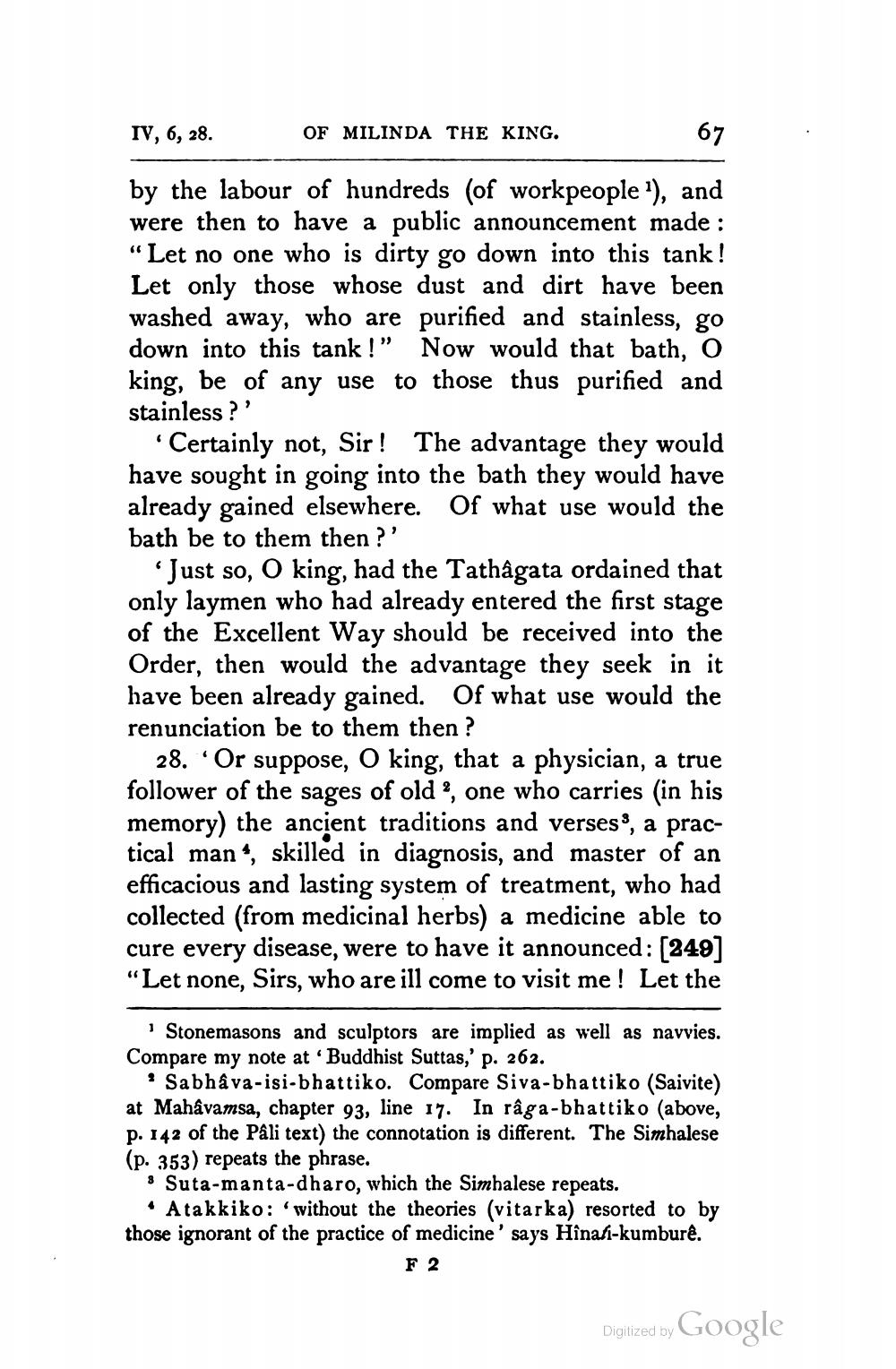________________
IV, 6, 28.
OF MILINDA THE KING.
67
by the labour of hundreds (of workpeople ?), and were then to have a public announcement made : "Let no one who is dirty go down into this tank! Let only those whose dust and dirt have been washed away, who are purified and stainless, go down into this tank!” Now would that bath, O king, be of any use to those thus purified and stainless ?
Certainly not, Sir! The advantage they would have sought in going into the bath they would have already gained elsewhere. Of what use would the bath be to them then ?'
Just so, O king, had the Tathagata ordained that only laymen who had already entered the first stage of the Excellent Way should be received into the Order, then would the advantage they seek in it have been already gained. Of what use would the renunciation be to them then ?
28. Or suppose, O king, that a physician, a true follower of the sages of old ?, one who carries (in his memory) the ancient traditions and verses”, a practical man“, skilled in diagnosis, and master of an efficacious and lasting system of treatment, who had collected (from medicinal herbs) a medicine able to cure every disease, were to have it announced : [249] "Let none, Sirs, who are ill come to visit me! Let the
Stonemasons and sculptors are implied as well as navvies. Compare my note at Buddhist Suttas,' p. 262.
Sabhava-isi-bhattiko. Compare Siva-bhattiko (Saivite) at Mahavamsa, chapter 93, line 17. In râga-bhattiko (above, p. 142 of the Pali text) the connotation is different. The Simhalese (p. 353) repeats the phrase.
& Suta-manta-dharo, which the Simhalese repeats.
• Atakkiko: without the theories (vitarka) resorted to by those ignorant of the practice of medicine' says Hînafi-kumburê.
F 2
Digitized by Google




